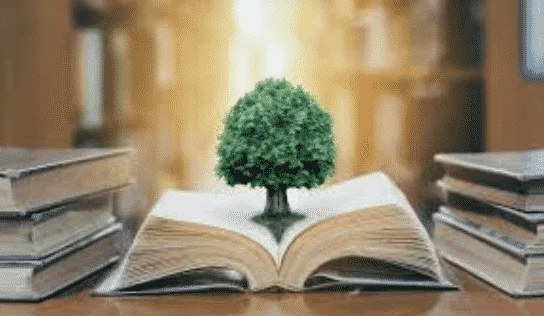Looking for the 20/21 titles? Click here!
Here we go! Here are our ideas for the second half of the May 2020 TOK Essay Titles. Read on to be inspired!
“The role of analogy is to aid understanding rather than to provide justification.” To what extent do you agree with this statement?
This question, much like prompt #3 this year, explores the differences in various types of understanding. A key part of answering this question will naturally be to define and settle the distinctions between ‘aiding understanding’ and ‘providing justification’. One could define ‘providing justification’ as giving information in order to prove something true/false. On the other hand, ‘aiding understanding’ does not care about the validity of the argument being explained.
Moreover, it is important to explore the concept of an analogy. Thinking about analogies through the lens of TOK, one could define it as explaining a concept in one area of knowledge using a different WoK or a different AoK. Using analogies to understand a concept can be thought of as using inductive reasoning. This is where some similarities between 2 separate situations may lead us to explain one of the situations in light of the other. Defining it in this way seems to give credibility to the argument that the role of analogy being to aid understanding, rather than providing justification. But, can you think of how an analogy could be used in a different situation to provide justification?
A possible structure for this essay would be to:
- Explore the difference between ‘aiding understanding’ and ‘providing justification’
- Define an analogy and its primary use
- Consider an example in which an analogy can be used in one AoK to aid understanding in another AoK
- Consider a counterexample in which an analogy provides justification to one AoK
- Evaluate if an analogy is usually used in just one of these situations, or if the two are equally prevalent.
“Given that every theory has its limitations, we need to retain a multiplicity of theories to understand the world.” Discuss this claim with reference to two areas of knowledge.
This title will be perceived by many to be the easiest of the 6 TOK essay titles in 2020. With that being said, since a lot of people will choose to write their essay on this title, be careful! Make sure the examples you use are not the same as everyone else chooses!
Title 5 invites you to explore the uses of various ways of knowing in order to form understanding within any given area of knowledge. It takes as given that there is no theory that gives full understanding within any given subject. It is only through considering a multiplicity theories, various perspectives, or various sources that we gain a full understanding of the world. A natural example to choose to explore this issue is looking at the world of natural sciences. Our shared knowledge of, let’s say, the structure of an atom, is the creation of a multiplicity of theories created over the course of many years.
Another example that could be considered is history. We do not gain a full understanding of the history of the world through considering any one source, or following any one given theory. We only gain a full understanding when cross-referencing these theories with a multiplicity of other theories about the same event. It is only then that we can truly accept the knowledge as more than a theory.
One last area of knowledge that could be valuable to explore with regards to this question is ethics. The very nature of ethics implies that any theory will have some limitations and it is only through discussing and considering counterclaims that we can gain an understanding about the intricacies of the world. This is most likely an area of knowledge that not many other students will explore, so may be a way to distinguish yourself as a thinker.
Check out 20 ideas for your TOK presentation!
“Present knowledge is wholly dependent on past knowledge.” Discuss this claim with reference to two areas of knowledge.
Much like title number 5, this may be perceived as an ‘easy’ TOK essay title, but don’t be fooled! The question is asking you to explore the relationship between past and present knowledge. One of the many difficulties in this prompt lies in defining and drawing the line between what is present and what is past knowledge. Where does one end and the other one begin? The second point of difficulty is exploring if present knowledge is ‘wholly’ dependent on past knowledge. It is clear to see that much of our knowledge today is a culmination of many years of knowledge evolving into what it is today. In order to affirm this claim, though, we will need to ensure that there are no areas of knowledge, or no pieces of knowledge, in which our current knowledge is not wholly dependent on past knowledge.
Now we are forced to explore the question if every piece of knowledge was influenced by something previously known, or if completely unique knowledge can be created. Choose 2 examples which, one could argue, is not affected by past knowledge. If you can find a way to justify that in fact, this present knowledge is in some way affected by past knowledge, then that lends us to believe that the claim may be correct. The key to this question lies in the examples that you choose.
And there we have it, the final 2020 TOK essay titles broken down! Did you miss last weeks?



